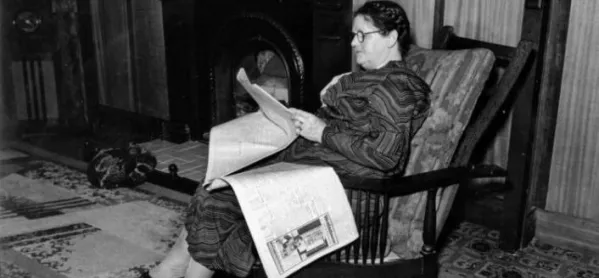Puns were flying into the back of the net this week as the 2018 World Cup kicked off in Russia on Thursday. The trouble is, all eyes on the football means fewer heads down for exam revision.
Research from Oxford and Bristol Universities has shown that in evenly-numbered years - when the World Cup or the Euros are on - GCSE grades dip. It’s likely to be worse this year, as reporter Helen Ward explained.
Let’s not forget that football is not for every man or woman - which is why school teacher Stephen Petty was inspired by former Ofsted chief inspector Sir Michael Wilshaw to draw up a guide for the uninitiated - in football, not teaching.
The guide will enable you to bluff your way through conversations for the foreseeable. When England plays Tunisia on Monday, for example, you might use pearls such as, “When he’s on fire, Kane is England’s only world-class player,” and such like.
Or you could just be yourself and admit you’re not interested. That said, football might be a good way of engaging the classroom in activities, as suggested here.
But it’s not all about football you know. Some schools were interested in quite a different pitch this week - namely, the bid for money to expand the number of selective places in some of the country’s 163 grammars.
With the deadline for submissions to the government’s £50 million Selective School Expansion Fund looming, there were no signs of bids for the most controversial plans - new satellite sites. But even plans for increasing grammar school places onsite are unsettling critics who say it will destabilise neighbouring schools and will do nothing for social mobility - one of the intended aims of expansion.
While views differ on where expansion should take place, no one denies that more school places are needed. Just this week, it emerged that the proportion of 11-year-olds securing a place at their first-choice secondary school over the past year has dropped amid rising demand for places.
The government poured oil on the grammar school debate by telling leaders of selective schools that they will be able to take over failing local schools and create non-selective schools which would still have a “grammar school ethos”. As Tes readers will know, this is merely announcing an existing policy whereby grammars can set up multi-academy trusts.
School standards minister Nick Gibb told selective school leaders at the Grammar School Heads’ Association annual conference that grammars should prove they are “engines of social mobility”.
To which Geoff Barton, general secretary of the Association of School and College Leaders, issued a strong riposte via Tes.
While selection divides, what unites teachers everywhere is decent pay. So the suggestion that they don’t need a significant pay rise because they already earn more than the average worker is likely to have stoked the ire of many. An own goal by the Taxpayers’ Alliance, or simply its raison d’être?




